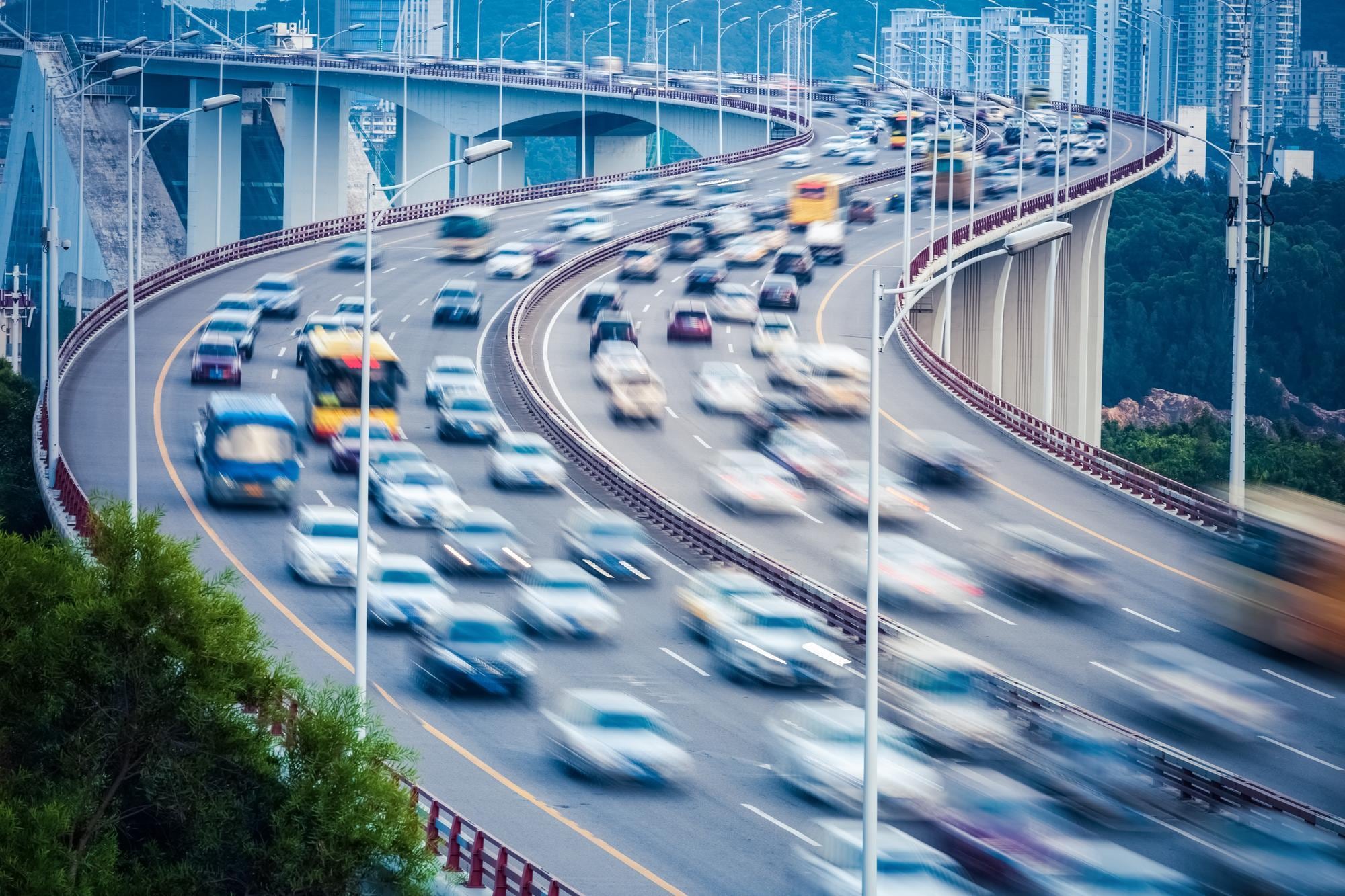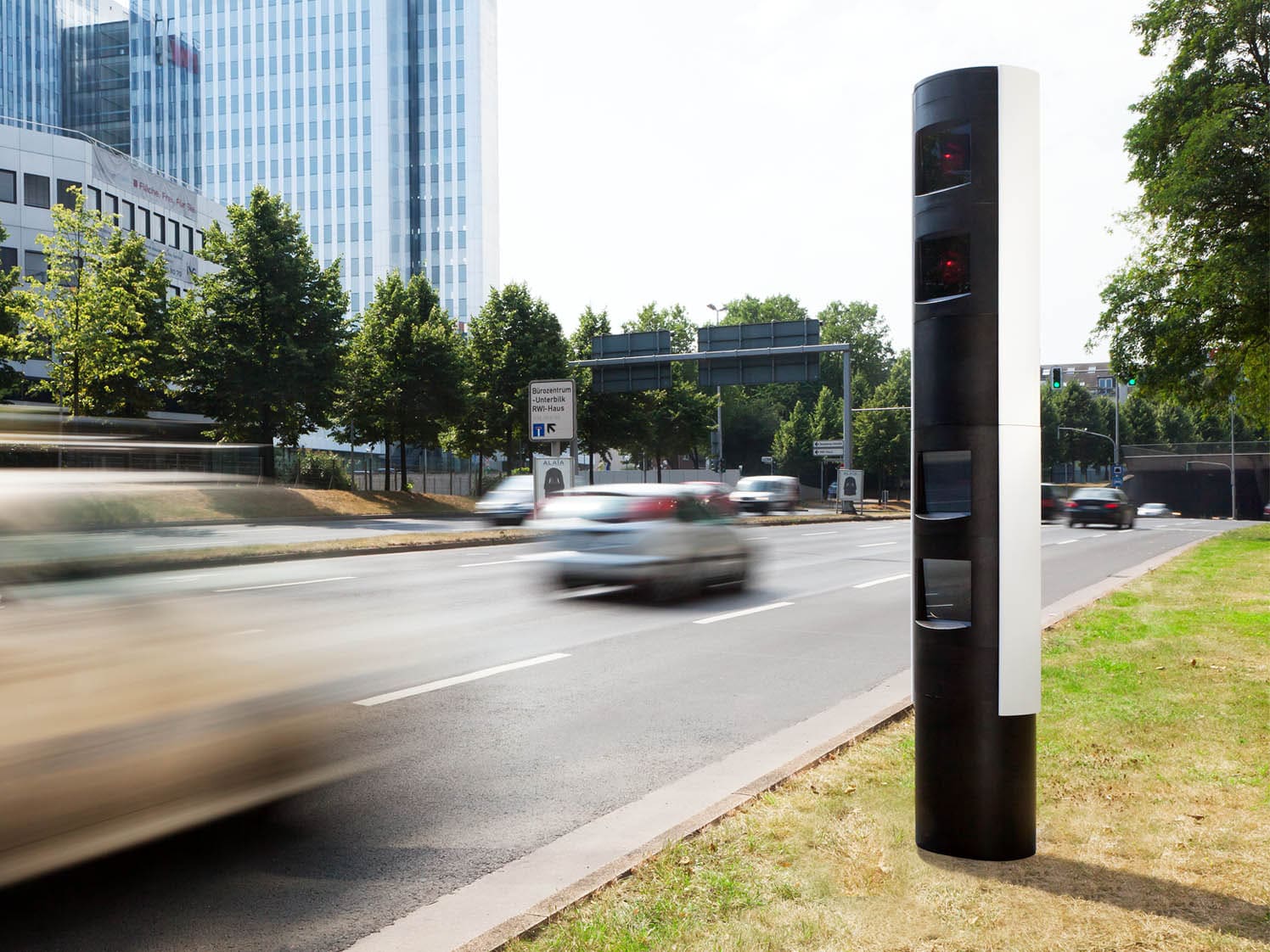RecommendMail Facebook LinkedIn
- Mobility
10 facts about toll enforcement in Germany
Fact check – What you ever needed to know about tolls in Germany as a truck driver or transport company.
, Cornelia EhrlerNight or day – trucks are on the road all over the world. They only come to a standstill in Germany on Sundays and public holidays. A fast pace and stress are part and parcel of everyday life for long-distance drivers. But there are still a few things to consider.
It is necessary to make sure the on-board unit (OBU) is set correctly prior to starting the journey. This applies especially to vehicles with a total weight of 7.5 tons or more. The OBUs enable automatic calculation of the truck toll. The permissible weight class and number of axles are the decisive factors in determining whether a vehicle or a vehicle combination is subject to tolls.
The truck toll was introduced on Germany motorways in 2005. It has also applied to trucks with a weight limit of 7.5 tons or more since 2015. In 2018, the obligation to pay truck tolls was finally extended to so-called secondary roads, i.e. to around 40,000 kilometers of German highways.
But which vehicles are subject to tolls? How is the truck toll recorded and what types of enforcement exist in Germany?

1. Which trucks have to pay toll in Germany?
In Germany, vehicles with a permitted total weight of 7.5 tons or more are subject to tolls on motorways and highways.
Update 2024:
The truck toll in Germany was extended on July 1, 2024: Since then, vehicles with a gross vehicle weight of more than 3.5 tons have also been subject to tolls on freeways and federal highways, provided they are used for road haulage.
2. Where does the truck toll apply in Germany?
The truck toll in Germany is collected on approx. 12,000 kilometers of motorways and around 40,000 kilometers of highways. The Toll Collect’s toll atlas describes the exact route where toll has to be paid.
3. Who monitors whether trucks are subject to tolls?
Toll Collect has been operating the truck toll system in Germany since 2005. The German federal government commissioned the company to operate the toll system following a Europe-wide tender.
4. What forms of toll enforcement are there in Germany?
The payment of the truck toll can be monitored using various types of checks. Approximately 300 permanently installed control bridges on motorways check whether the OBU of a toll vehicle is ready for collection.
Stationary controls can also be carried out using the bridges. The data from vehicles that have not paid a toll can be transmitted to employees of the German Office for Freight Transport (Bundesamt für Güterverkehr – BAG), for example, in a parking place situated further along.
About 600 toll enforcement towers are located along the sides of German roads, which register passing motor vehicles and check their weight class and number of axles. The towers were developed by Jenoptik based on the proven TraffiTower housings for speed monitoring.
The BAG also uses control vehicles that operate using similar technology to bridges and towers. BAG employees carry out additional random business checks. They check registered transport companies.
5. How is the truck toll recorded?
The truck toll is recorded in three different ways. The use of an on-board unit is a simple and convenient option for the driver. It displays the number of axles and the weight of the vehicle while driving. It also shows whether the truck is travelling in Germany. Transport companies need to register with Toll Collect in order to use an OBU. After successfully registering, the OBU is then installed at one of the service partners. The OBU is made available free of charge to the transport companies by Toll Collect, but remains the property of the toll operator.
Another way of paying tolls is via the approx. 1,100 toll terminals at roadside laybys, gas stations or truck stops. All data related to the forthcoming trip must be entered here prior to the start of the trip. Route, starting time and destination need to be entered. It is possible to book via the terminals 24 hours prior to beginning the trip. Similarly, long-distance drivers can log into Toll Collect online using an app or on stationary PCs and purchase a ticket for toll routes. This takes place according to a principle similar to that of the toll terminals.
6. How much does the toll in Germany cost for trucks?
Uniform toll rates apply for truck tolls in Germany on all German motorways and federal highways. The amount of toll to be paid is calculated centrally in the toll operator’s computer center. The trip data required for this are transmitted there by the OBU in encrypted form. Set rates are used to calculate the toll fees. Depending on the category or classification, the toll currently amounts to between 9 and 26 cents per kilometer.
7. Which categories are used to determine tolls in Germany?
Above all, those vehicles that are heavy users of the infrastructure have the greatest obligation to maintain it, according to the motto “mobility finances infrastructure”. The toll amount is differentiated according to pollutant emissions, the number of axles and the weight class. The part of the toll to be paid for noise pollution is charged as a flat rate for all vehicles.
8. Who is exempt or granted discounts from the truck toll?
Electric and natural gas vehicles currently benefit. This regulation also includes purely battery-charged electric vehicles, externally rechargeable hybrid electric vehicles and fuel cell vehicles.
A reduced toll rate will apply to vehicles powered by natural gas from 1 January 2021. This is 1.1 cents per kilometer cheaper than for a comparable diesel vehicle with Euro 6 standard. This regulation applies to all compressed natural gas (CNG) and liquefied natural gas (LNG) vehicles. Corresponding vehicles with bivalent propulsion (e.g. dual fuel operation with liquefied natural gas (LNG) and diesel) will also benefit from the reduced toll rates.
LPG vehicles are not eligible for reduced toll rates.

9. What is the toll used for in Germany?
Toll revenues collected by Toll Collect are transmitted directly to the government. It uses the revenues specifically for the modernization of German roads and for maintenance and expansion of the transportation network. The majority of the tolls charged thus flow directly to the motorways and highways. Here the focus is on financing the infrastructure.
10. What are the consequences of infringements?
If the toll for a vehicle is not paid correctly or not at all, the German Federal Office for Freight Transport (BAG) is responsible for penalties. The toll is charged subsequently in the case of an infringement. If the BAG is able to clarify the situation together with the driver, the actual distance covered is recalculated. If this is not the case, the toll is set at a flat rate for a distance of 500 kilometers.
About Cornelia Ehrler
Cornelia Ehrler has been working in Jenoptik’s Corporate Communications since 2010, primarily for external communications and initiatives which help Jenoptik develop into a focused photonics group. Additionally, she supports Jenoptik's Smart Mobility Solutions division in communicating orders and projects relating to road traffic safety. A graduate in English Studies, she has a penchant for English literature and culture, particularly from the Celtic Fringe.







